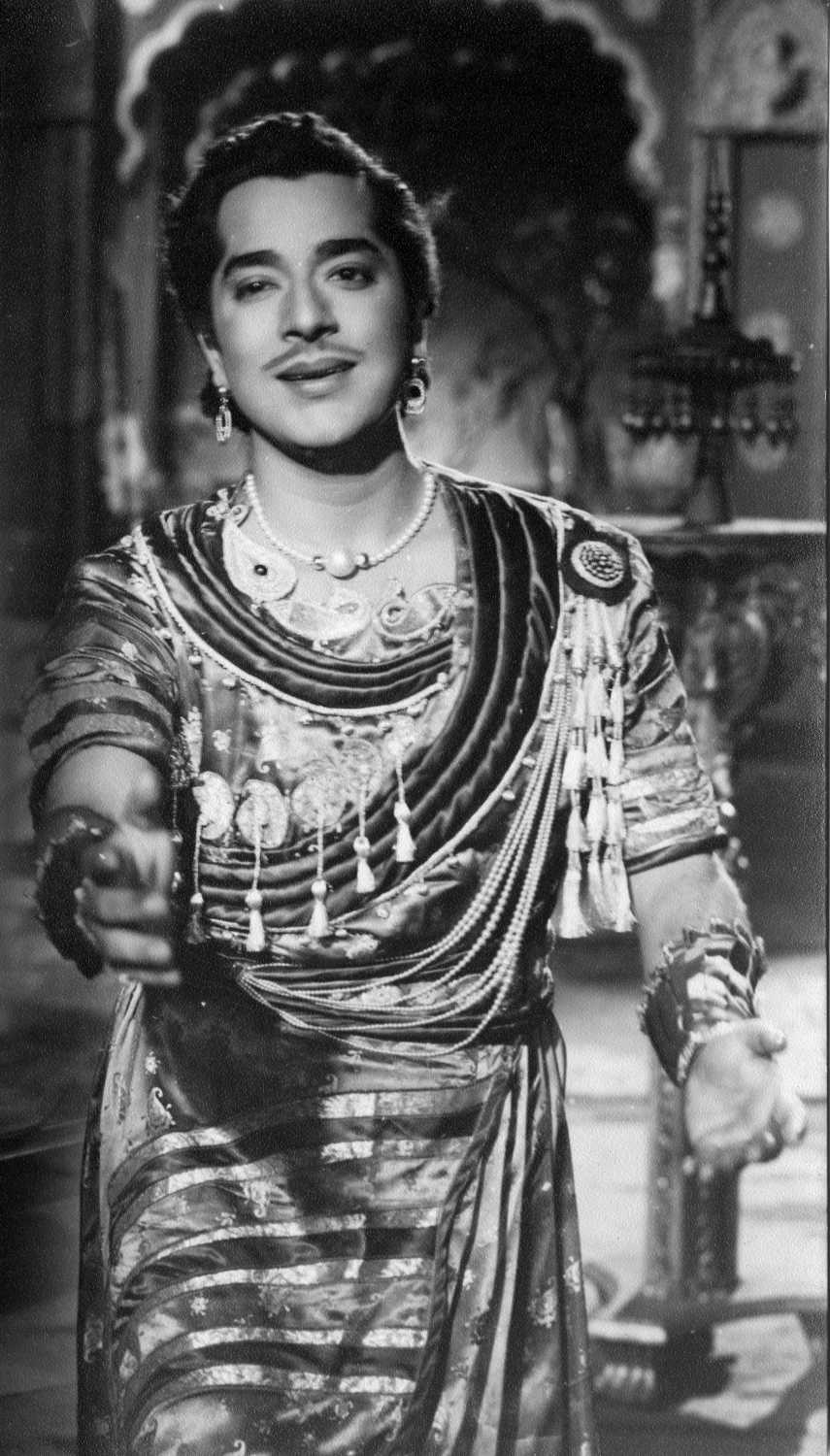An unwilling actor, Kumar often portrayed Mughal princes and sophisticated nobles. Despite possessing a natural gift and screen presence as well, he never quite achieved the box-office success that some of his contemporaries enjoyed.
Pradeep Kumar: The king who could never quite rule Hindi cinema
Mumbai - 27 Oct 2016 13:44 IST
Updated : 28 Oct 2016 0:16 IST


Shriram Iyengar
In 1963, when M Sadiq decided to film the legendary romance between Mumtaz Mahal and the Mughal emperor Shah Jahan, there was only one man he could think of casting in the role of the erstwhile king — Pradeep Kumar. Sophisticated, charming, and blessed with regal features, Kumar remains an iconic name in the history of Indian cinema for his portrayal of Mughal princes and kings. It was his greatest strength, and also his curse.
Born to orthodox Bengali parents, he was named Sheetal Batabyal. An avid watcher of films, he would try and catch every film that starred his favourite actor, Ashok Kumar. It was natural that the young Sheetal would be smitten by the thought of entering this glamour industry. At the age of 17, he decided to take matters into his own hand, and took up a job at Anurag Studios in Calcutta against his father's wishes.
As Pradeep Kumar later recalled, "It was a difficult time. The [Second World] War was on, and my father was against my joining films. So I took up a job at Anurag Studios as an assistant cameraman." It was on one of these shoots that director Debaki Bose spotted the handsome young man and cast him in Alaknanda (1947).
However, it was Anand Math (1952) that brought Kumar fame. His performance as the sombre Jivanand caught the attention of critics. It wasn't just his sharp-cut moustache, square shoulders, and elegant presence that made an impression. A Bengali, Kumar had worked hard to brush up on his Hindi and Urdu diction, spending hours with writers. It was this diction and control of language that set him apart from the rest.
In 1953, Pradeep Kumar was cast as Shehzada Salim in the first big-budget production on another legendary romance, Anarkali. The film was a big hit and Pradeep Kumar's role would be reprised later by another wonderful actor with supreme control of the Urdu language, Dilip Kumar, in Mughal-e-Azam (1960).
Pradeep Kumar followed up the success of Anarkali with Nagin (1954) with Vyjayanthimala in the lead. A dedicated actor, Kumar did not shy away from stunts and let a python play on his arms for a scene in the film. It certainly added to his reputation as a charmer. Not only did the films win him a legion of fans, but they also earned him breakthroughs with directors like Raj Kapoor and V Shantaram. He signed on to do Jagte Raho (1956) with Kapoor, and Subah Ka Tara (1956) with Shantaram.
The only complaint, perhaps, was the inability of Kumar to deliver consistent hits. He arrived in films alongside the trio of Raj Kapoor, Dev Anand and Dilip Kumar but it was unlikely that Pradeep Kumar would find himself paired alongside the leading ladies of the time, though he did work with Madhubala in films like Yahudi Ki Ladki (1957), Gateway Of India (1957), Police (1958), Mahlon Ke Khwaab (1960) and Passport (1961). However, apart from Yahudi Ki Ladki, no other venture made a dent in public memory.
It was at this time that Taj Mahal (1963) arrived. Directed by M Sadiq, the film was propped on the beautiful lyrics of Sahir Ludhianvi and the magical music of Roshan. The memory of these songs continue to enrich Pradeep Kumar's legacy till this day.
Among the many actresses that Kumar shared a great rapport with was Meena Kumari, who had a hand in most of his successes. The magical pair did seven films together, of which Chitralekha (1964) and Bahu Begum (1967) were the most successful. As the actor would say in an interview in the 1970s, "I still love and respect Meena Kumari. If she was around, I'd probably be doing a lot more films."
A spate of flops and the rise of a new breed of romantic heroes in the 1960s in Biswajeet, Joy Mukherjee, and Shammi Kapoor spelt the end for Kumar's central roles. In 1969, he found some success in a character role in Sambandh. Yet, it was not enough to revive a faltering career.
A stellar actor, charming man, and regal personality, Pradeep Kumar continues to be remembered for his performances. For many older film audiences, his personality was simply an extension of the regal roles he played on screen. Even after his retirement, his larger-than-life personality continued to be a popular presence on social circuits. No surprise then that his last role came as another emperor of Delhi in Kamal Amrohi's Razia Sultan (1983), After all, princes never retire.






